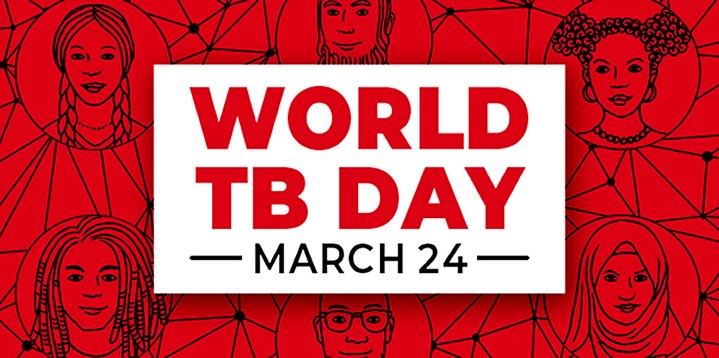SPOTLIGHT OP-ED
World TB Day: Let’s seize this moment to change the status quo

As with SARS-CoV2, we need to rapidly implement and scale up effective tuberculosis prevention interventions, while remaining adaptive to prevailing needs across the country. If we choose to pursue this more deliberate approach to TB prevention in South Africa, World TB Day will no longer be an admission of insufficient progress, but a celebration of defeating our longstanding battle with this curable disease.
This World Tuberculosis (TB) Day, we divert our attention momentarily away from the novel coronavirus (SARS-CoV2) epidemic and refocus on a disease that has plagued us for a considerable time, causing mortality of similar proportions seen with SARS-CoV2 in 2020, and close to a billion deaths historically.
SARS-CoV2 has been detrimental to TB control efforts with many national TB programmes reporting substantial attrition across all areas of TB care — high-burden countries such as South Africa have been particularly affected, with TB testing alone dropping by almost 50% for most of 2020.
While World TB Day has never felt like a celebration, in fact, it has been more of an admission that our ongoing efforts have not yielded the desired results to achieve epidemic control — this year we have reasons to be hopeful.
Reasons for hope
Advances in TB preventive therapy (TPT), a specific form of treatment for individuals infected with TB or those considered at high risk of developing TB disease (for example immunocompromised individuals), has seen what was once a six-month course reduced to three months, known as 3HP.
Further advances to combine antibiotics rifapentine and isoniazid into a single pill that can be taken weekly for three months, improves feasibility of the regimen and makes the realisation of safe, tolerable and effective preventive therapy possible. South Africa has been at the forefront of TB preventive therapy scale-up, with the first patients expected to start on the new 3HP regimen in April 2021.
In addition, the adoption of rapid diagnostic tests such as GeneXpert Ultra has reduced the time for diagnosing TB from up to 42 days to a mere two hours — rapid diagnosis of TB is crucial to reducing further transmission, enabling earlier treatment initiation thereby reducing morbidity and mortality.
South Africa has also demonstrated its commitment to using the most updated science to inform TB policy decisions, achieved through the formation of a National TB Think Tank — this forum brings together the country’s leading TB experts and implementation partners to optimise patient management strategies and guide the selection of appropriate interventions to maximise control efforts.
New insights
Another reason to remain hopeful is the insight gained from the recent completion of the first National TB prevalence survey in South Africa. The survey which sampled and tested about 35,000 individuals for TB across all nine provinces, aimed to quantify the true burden of TB disease in the country.
Key findings from the survey included that the prevalence of TB disease for 2018 was higher than previously estimated at 852 per 100,000 individuals, whilst also highlighting that a high proportion of individuals delayed seeking care despite displaying TB-related symptoms.
Another finding that challenges current TB prevention dogma was the high proportion of HIV-uninfected individuals diagnosed with TB that did not report any symptoms (ie asymptomatic). This suggests that continued reliance on the presence of TB-related symptoms for prompting further testing would continue to miss many TB cases.
A debate has now ensued among researchers about the prospect for a universal test and treat approach for TB in certain populations, akin to what the HIV community has adopted. The evidence for such an approach however is currently limited, and ongoing studies among high-risk populations such as household contacts of TB patients may offer insights into the value and cost-effectiveness of such an approach.
In the meantime, we need to continue optimising the delivery of existing interventions in various populations while transitioning away from the traditional “value for money” approach to TB control — if we want to achieve TB elimination, we have to invest in whatever resources are required to achieve this.
Changing the status quo
Reducing TB incidence and achieving epidemic control is possible in South Africa but will rely on effectively implementing existing and newer tools — limiting the delay in translating updated evidence into policy and implementation is not just important, it’s crucial to changing the status quo.
The SARS-CoV2 epidemic and subsequent development of multiple effective vaccines in rapid time have taught us that political will is an important enabler to achieving public health success — as the TB community, this success should embolden us.
The onus rests on our collective efforts to engage a broader base of government and various sectors to be part of the solution to achieving TB control.
Like with SARS-CoV2, we need to rapidly implement and scale-up effective prevention interventions, while remaining adaptive to prevailing needs across the country. If we choose to pursue this more deliberate approach to TB prevention in South Africa, World TB Day will no longer be an admission of insufficient progress, but a celebration of defeating our longstanding battle with this curable disease. DM/MC
Dr Kavindhran Velen and Professor Salome Charalambous are both with the Implementation Research Division at the Aurum Institute. Charalambous heads the South Africa TB Think Tank.




















 Become an Insider
Become an Insider
Comments - Please login in order to comment.